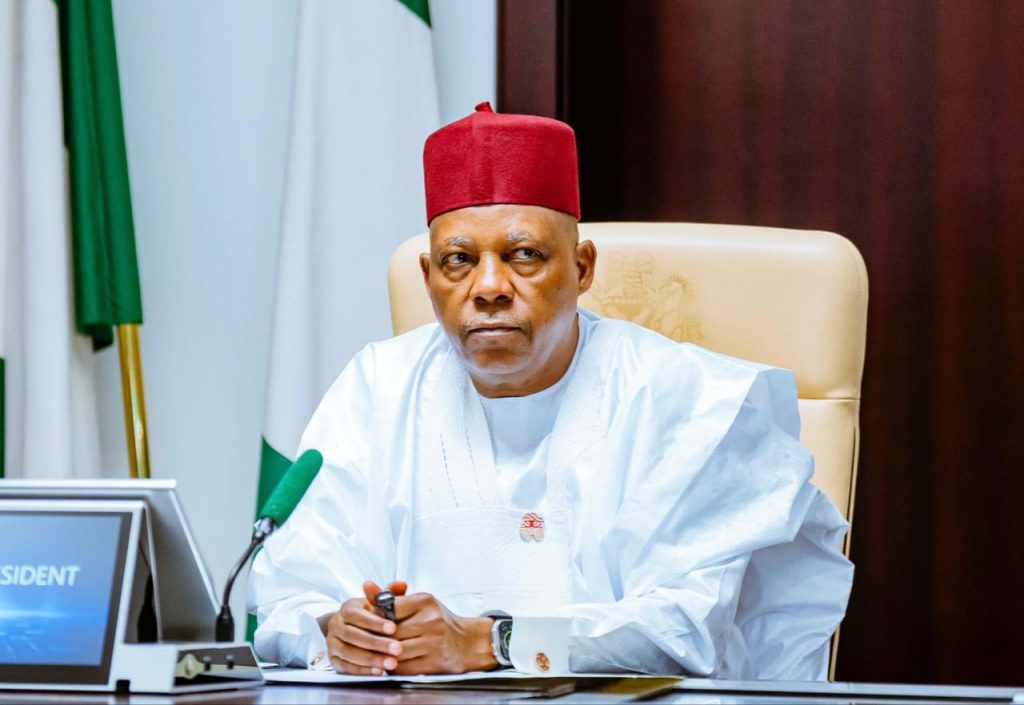Vice President Ibrahim Kashim Shettima has disclosed that Nigeria loses an estimated $56 billion in human capital every year due to malnutrition, equivalent to 12.2 percent of the nation’s income. He described the situation as a tragic setback that fuels poverty, undermines national development, and destroys the potential of millions of citizens.
Speaking at a conference themed “Mobilizing Against Malnutrition in Northwest Nigeria,” organised by Médecins Sans Frontières (MSF) on Thursday in Abuja, Shettima said thousands of children and pregnant women die yearly from malnutrition-related causes, while many more are left physically and mentally impaired.
Represented by the Senior Special Assistant to the President on Public Health, Uju Rochas-Anwukah, the Vice President stressed that solutions to malnutrition are well-known, evidence-based, and cost-effective.
“When a nation’s child suffers from stunted growth, his future becomes stunted. When a mother lacks the nutrition to sustain herself and her unborn child, it is a collective indictment of our social system,” he said. “Nutrition must not be seen as a cost but as an investment. Every dollar invested yields a return of $23—one of the highest for any development intervention.”
Shettima highlighted the federal government’s Nutrition 774 initiative as part of efforts to decentralise and strengthen the national response.
He noted that the National Council on Nutrition is driving a new model of leadership anchored on political commitment, sustainable financing, multi-sectoral coordination, accountability, and evidence-based planning.
He added that no child should be disadvantaged because of where they are born, stressing the need to scale up what works and discontinue ineffective interventions.
Calling for stronger partnerships, Shettima said: “Nutrition is not charity—it is enlightened self-interest. A nourished child is a future innovator, teacher and leader. In fighting malnutrition, we are securing Nigeria’s future.”
Katsina State Governor, Dikko Radda, described malnutrition as an emergency undermining the future of children across the Northwest.
He said the alarming rates of stunting, wasting and underweight are “not just statistics but unfulfilled potentials and prematurely cut short lives.”
Radda outlined extensive reforms to strengthen healthcare delivery in the state, including a N40 billion investment in 2024, completion of 261 primary healthcare centres, upgrade of seven comprehensive centres to general hospitals, and recruitment of over 2,900 health workers.
He also disclosed that the state contributed N1 billion to the Child Nutrition Fund, which UNICEF matched in 2023, 2024 and 2025. He added that Katsina is establishing local production capacity for therapeutic food to ensure sustainable supply and reduce reliance on imports.
Minister of Health and Social Welfare, Prof. Muhammad Ali Pate, noted that malnutrition remains one of Nigeria’s most pressing health challenges, especially in the Northwest, where wasting and stunting rates remain alarmingly high.
He said the 2024 NDHS survey shows that some states in the region have global acute malnutrition levels exceeding emergency thresholds.
He warned that without urgent and sustained action, underlying drivers such as poverty, weak health systems, food insecurity and low preventive services will continue to fuel the crisis.
“Behind every number is a real child, a real family struggling to survive,” Pate said.
MSF Country Representative, Dr. Ahmed Aldikhari, said Nigeria is the country where MSF treats the highest number of children affected by acute malnutrition worldwide.
In 2024 alone, MSF admitted nearly 300,000 children with severe acute malnutrition in outpatient units across northern Nigeria—more than half of its global caseload.
He said the scale reflects both the severity of malnutrition in the northern Sahel and Nigeria’s large and rapidly growing population. Aldikhari called for coordinated action at all levels, noting that the initiative for the conference emerged from consultations with the Katsina State Government.
He added that while government efforts are expanding, the magnitude of the problem requires urgent support from development partners, donors, and the private sector.

